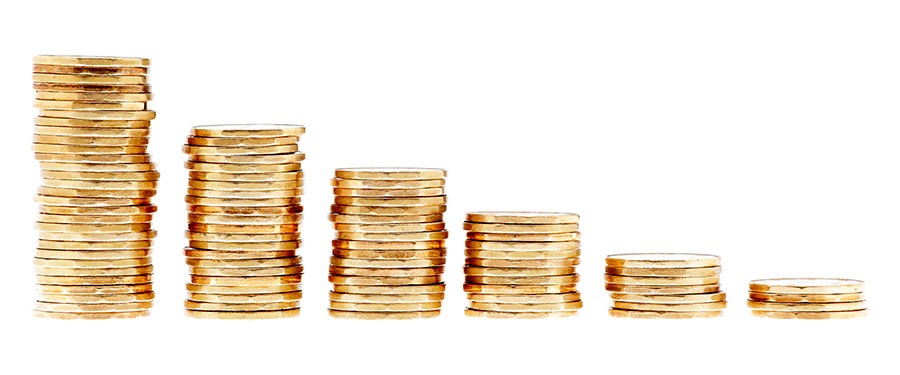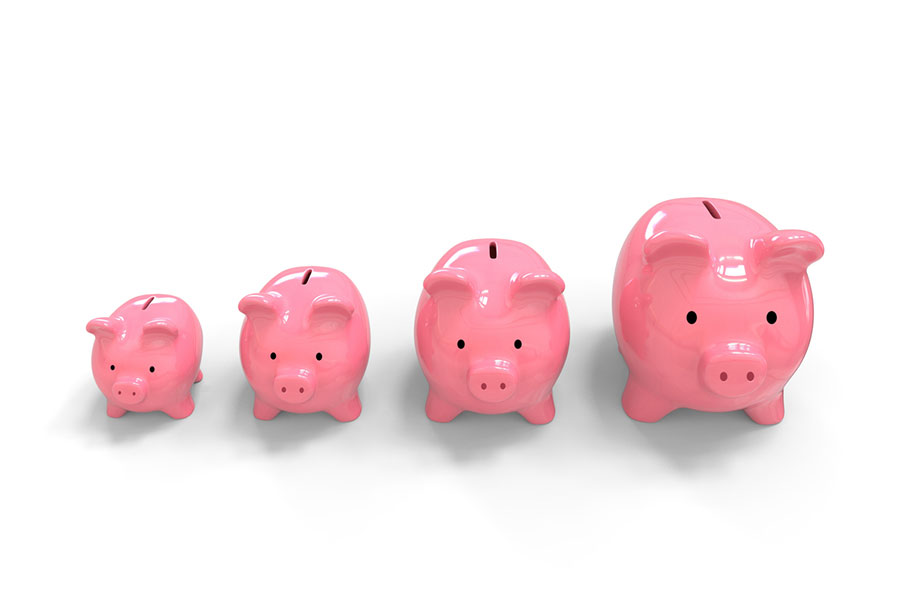A nice problem to have is still a problem
In the grand scheme of things, coming into money sounds like a pretty good problem to have. But with opportunity comes pressure to get it right. How do you make sure you’re putting your money to its best possible use?
Tannya McBride (Bachelor of Applied Finance ’07) understands the stress that can come with an unexpected windfall. “It’s a big deal,” says the NAIT finance instructor and Certified Financial Planner.
“There are tons of horror stories out there about people who win the lottery and then go bankrupt. But there are also success stories. A lot of articles focus on the negative, the ‘curse’ of winning the lottery. I don’t think that’s true at all – or it shouldn’t be true.”
Whether you’ve cleaned up on the Lotto 6/49, or just gotten your inheritance from grandma, follow these steps to make your deposit last as long as possible.
1. Do nothing

Seriously. The first thing to do when you unexpectedly come into money is stop and gather your thoughts. Don’t start spending right away, and, most importantly, tell as few people about it as possible.
For lottery winners, there can be legitimate safety concerns if everyone around you suddenly realizes you’re worth millions. But even smaller amounts of cash can bring out uncomfortable interactions with co-workers, friends and even family members.
“The more private the matter is, the safer it’s going to be,” says McBride.
2. Talk to an expert (or two)

Once you’ve wrapped your head around your new financial situation, it’s time to talk to someone and make a plan. But not just anyone. Make sure you’re dealing with a financial professional: a Certified Financial Planner, a chartered accountant, or a lawyer with experience in this area.
Don’t be afraid to shop around, either. “Even if you think the advice you’ve gotten is good,” McBride says, “it doesn’t hurt to get a second opinion.” Or a third. The more experts you can speak with, the better perspective you’ll get.
3. Be realistic

“Some people think a million dollars is a lot of money,” says McBride. “It really isn’t. It might not even be enough to get you through a comfortable retirement.”
With that in mind, be realistic about how much money you actually have – chances are it’s a lot less than a million – and think through what’s actually in the realm of possibility.
“Some people think a million dollars is a lot of money. It really isn’t."
For instance, the first thing that comes to mind for a lot of people is paying down their mortgage. But depending on the interest rates, you might be better off investing and earning a higher return than what you’re paying on your mortgage. Again, financial professionals can advise you on the best course of action.
4. Keep your mental health in mind

Receiving money is never bad news, obviously. But it can take an unexpected toll on your mental health, especially if it’s a high amount or becomes common knowledge among your social circle.
“You’re going to be under a lot of pressure, from a lot of people,” McBride says, be it anyone from family members to distant high-school acquaintances to (in the case of lottery winners) aggressive financial “experts” selling you their services.
These uncomfortable conversations can come as a surprise. Consulting with a neutral third party, like a counsellor, can help guide you emotionally through this time.
5. Invest conservatively

The goal with any windfall is to make your money last. So no matter how tempting a flashy startup stock might look, it’s a safer bet to invest your money in more conservative vehicles that yield smaller but steadier returns.
Invest your money in more conservative vehicles that yield smaller but steadier returns.
For example, dividend mutual funds can yield 3% or 4% each year, and many of the companies that offer these funds in Canada – like banks – are reliable.
If you absolutely can’t resist the thrill of taking a risk, McBride suggests designating a set amount of money from your windfall for that type of investment. No matter what, don’t go over that number. “The majority of your assets should be well-diversified,” she stresses.
6. Be generous, but be smart about it

Donating some of the money to a charitable cause is a worthy idea, but, again, talk to a financial professional to figure out the best way of doing it. Every Canadian can claim a donation tax credit, but it has a limit based on your annual income.
As far as using that credit to offset taxes based on your newfound wealth, there’s actually no need. In Canada, there are no taxes on an inheritance or lotto winnings. Nevertheless, donations can still have a positive impact on your bottom line.
“You might want to spread [them] out so that you can maximize those credits and minimize the amount of tax you pay,” McBride says.
Are annuities an answer?
Looking for a steady income from your windfall? Consider annuities.
McBride describes these as “the opposite of an insurance policy.” With life insurance, you pay a small premium at regular intervals, and at the end there’s a large pay out. With annuities, it’s the reverse. You pay an insurance or investment company a large amount of money up front, and then they guarantee you regular payments, based on current interest rates, for a set amount of time – maybe for 10 years, maybe until age 65, or maybe until death.
This way, no matter what else happens, you know you’ve got guaranteed money coming in.